

Against the backdrop of its war in Ukraine, Russia is attempting to compete with the West for influence in neighboring Moldova. Moscow’s main aim is to change the pro-Western government in Chisinau, the Moldovan capital, via upcoming presidential elections in the fall. The Moscow-based Moldovan oligarch and politician Ilan Shor, who was convicted in absentia in Moldova for fraud and graft after nearly $1 billion disappeared from the country’s banking system, is expected to play the key role. His party was banned, but the Moldovan Constitutional Court ruled that its members could still participate in the elections. Shor and his team thus became Russia's privileged partners in Moldova. A politician close to Ilan Shor, the head of Gagauzia, Evghenia Guțul, even attended a one-on-one meeting with Vladimir Putin during a visit to Russia in March. Shor's task is to lower the rating of incumbent President Maia Sandu — not least by relying on Gagauzia's traditionally pro-Russian electorate.
Content
The elusive Ilan Shor
A remote politician
The Transnistrian frontier
Pro-European forces
On the evening of March 16, 2024, a short man in a suit and a bright red tie made his way to an interview with the Russian journalist Alexei Venediktov in Moscow. He arrived in a huge black Aurus Senat limousine — one just like Vladimir Putin's. Accompanied by a security guard, he made his way up to the studio and within a few minutes was already answering questions live on RTVI, a Russian news network with reported ties to Rostec’s Sergey Chemezov.
“I need to understand, are you Shura Balaganov or Ostap Bender?” Venediktov asked the guest, referring to two fictional characters from the novels of famous Russian writers Ilya Ilf and Yevgeny Petrov. The figure of Balaganov referred to an unimaginative small-time crook, while that of Bender was a nod to a creative, resourceful con man.
“I am Ilan Shor. A new figure in the modern history of the world,” smiled the interviewee.
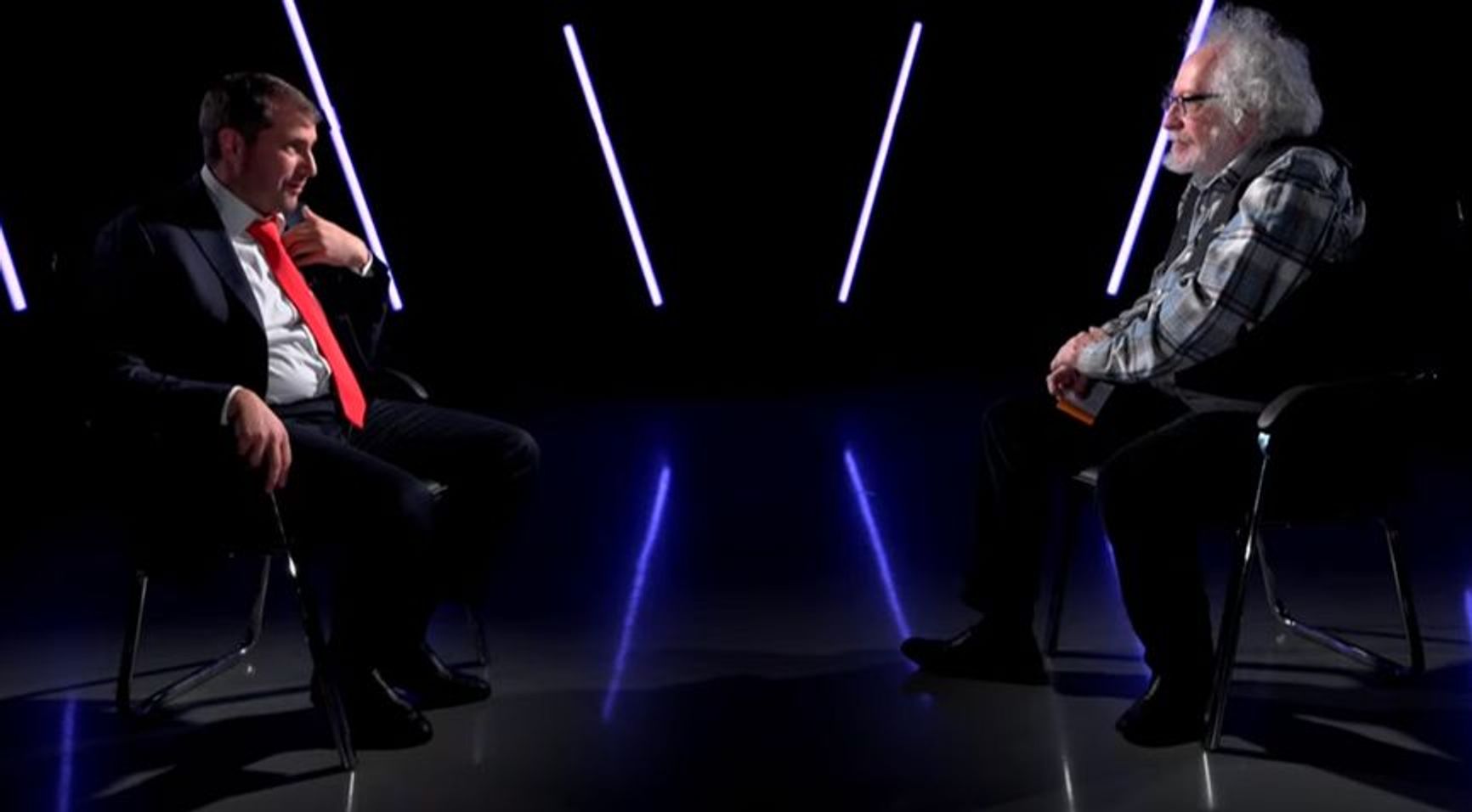
Ilan Shor and Alexei Venediktov
The host Venediktov’s mention of the main character of Ilf and Petrov's books was hardly a coincidence. According to one version of the fictional story, the prototype for Ostap Bender was the Odesa opportunist Osip Shor. It’s unclear if Ilan Shor fully understood the comparison. It appeared that he had come to the interview not to deal with metaphors, but to push his line:
“My political task is to defeat the current anti-people regime.”
In Shor’s view, the “anti-people regime” refers to the current pro-European president of Moldova, Maia Sandu, and the government appointed by the ruling — and also pro-European — Action and Solidarity party.
Ilan Shor says he expects to defeat them this year, as Moldova is scheduled to hold presidential elections in the fall. Sandu has already announced her intention to be re-elected for a second term. A constitutional referendum on Moldova's accession to the European Union — carried out on Sandu’s initiative — is to be held on the same day as the elections.
Ilan Shor expects to defeat Moldova's “anti-people regime” this year
Shor’s ultimate goal is to upend the elections, causing Maia Sandu lose. This coincides with Moscow’s desires, as the Kremlin’s relations with Chisinau have been deteriorating since the start of the war in Ukraine. Shor is one of the tools to achieve this goal.
The elusive Ilan Shor
The biography of 37-year-old Ilan Shor reads like a detective novel, filled with unexpected turns and deceit. Having inherited his father Miron Shor's business (clothing, perfume and cosmetics stores, duty-free stores, and real estate) in 2005, the sociable Ilan quickly acquired connections in Moldovan politics — and in the Russian elite.
The press reported on the young entrepreneur's ties with Vladimir Kozhin, head of the Russian Presidential Administration’s Control Directorate, Leonid Tyagachyov, head of the Russian Olympic Committee, and Andrei Belyaninov, head of Russia’s Federal Customs Service. While none of the three still occupy positions of power, Shor nonetheless socialized with them in their heyday. Shor’s connections were on full display at his wedding in Chisinau in 2011 — Russian and Moldovan politicians and show business stars all turned up to congratulate him on his marriage to the singer Jasmin, a Russian national.
Thanks to his connections in government circles, including with the country's then-prime minister Vlad Filat, by 2014 Shor had gained control over three Moldovan banks — Banca de Economii, Unibank, and Banca Sociala. None of them exist today. The banks were liquidated after $1 billion was withdrawn from them in the fall of 2014. However, it wasn’t Shor who was behind the illegal scheme, but the former shadow leader of Moldova, oligarch Vladimir Plahotniuc. After helping Plahotniuc transfer the funds, Shor simply became a convenient distraction, drawing public and prosecutorial attention away from the oligarch by becoming the central suspect in the fraud investigation. And yet, Shor did not go to jail.
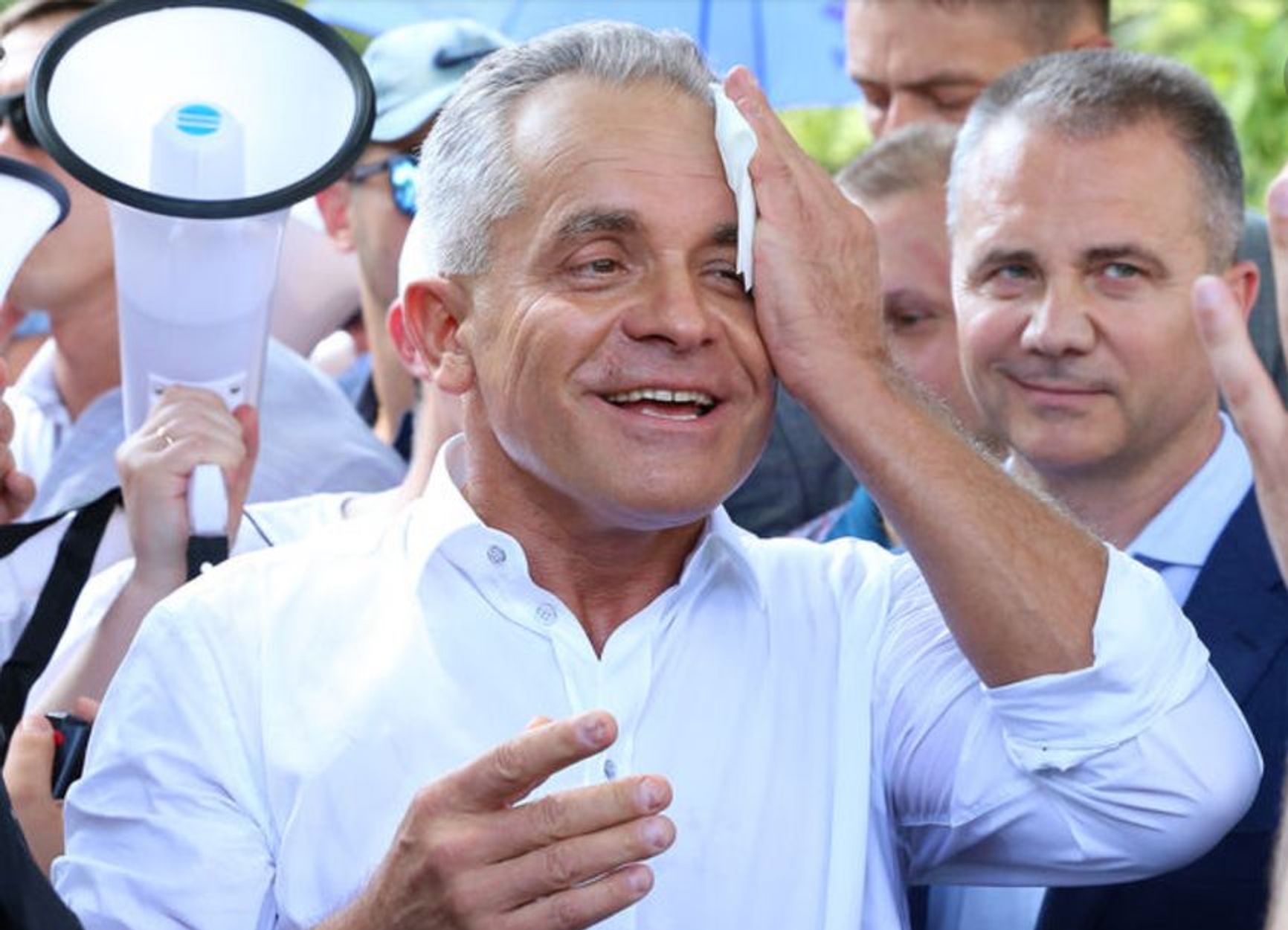
Vladimir Plahotniuc
Plahotniuc, who at that time controlled the entire law enforcement system in Moldova, including the prosecutor's office and courts, patronized his accomplice. Thanks to the oligarch, Shor avoided being placed behind bars — even temporarily — during the investigation. In 2017, when a Chisinau court sentenced him to seven-and-a-half years in prison for financial fraud, Ilan Shor was still allowed to remain free until the case was heard by higher-ranking courts.
Plahotniuc also blessed Shor with an unusual posting — in June 2015, Shor was elected mayor of Orhei, a small town about 60 kilometers from Chisinau. The fraud investigation did nothing to prevent him from assuming the post. As mayor, Shor turned the town into a showcase: he repaired sidewalks and roads, rebuilt squares and streets, and built an amusement park with free rides for children.
The politician's involvement in the theft somehow turned to his advantage — “everyone steals, but at least he does something for the people,” locals said. Shor’s popularity grew, and the experiment continued. In 2016, he created a party and named it after himself — “Shor” — and the key word in the party program was “free”: free education, free medical care, increased benefits for the socially vulnerable, and so on.
Shor's involvement in the billion-dollar theft somehow turned to his advantage
of February 2019, Ilan Shor's party made it into parliament, winning seven seats out of 101. Shor himself became an MP. By then, Plahotniuc, who was already running the entire country without holding political office, was starting to have problems. The opposition, including current President Maia Sandu, began to rally against the oligarch and protest his kleptocratic control over power. Shor and his supporters, in turn, fought back against those who criticized Plahotniuc.
In June 2019, Plahotniuc's regime collapsed. It was dismantled through a joint effort by Russia, the U.S. and the EU — cooperation was still possible at the time. They achieved the unification of Moldovan opposition parties into a parliamentary coalition made up of a diverse array of forces that included the pro-Russian Party of Socialists led by Igor Dodon and the pro-European Action and Solidarity party created by Sandu. A new government headed by Sandu was appointed.
Plahotniuc fled Moldova after a brief conversation with the visiting U.S. ambassador. Ilan Shor, who had so loyally served Plahotniuc’s interests, also disappeared. A citizen of both Moldova and Israel, he settled in Tel Aviv.
A remote politician
After fleeing, Shor continued to engage in Moldovan politics remotely. When Maia Sandu became president in 2020 and her Action and Solidarity party won early parliamentary elections a year later, Shor began his assault on Sandu and her team.
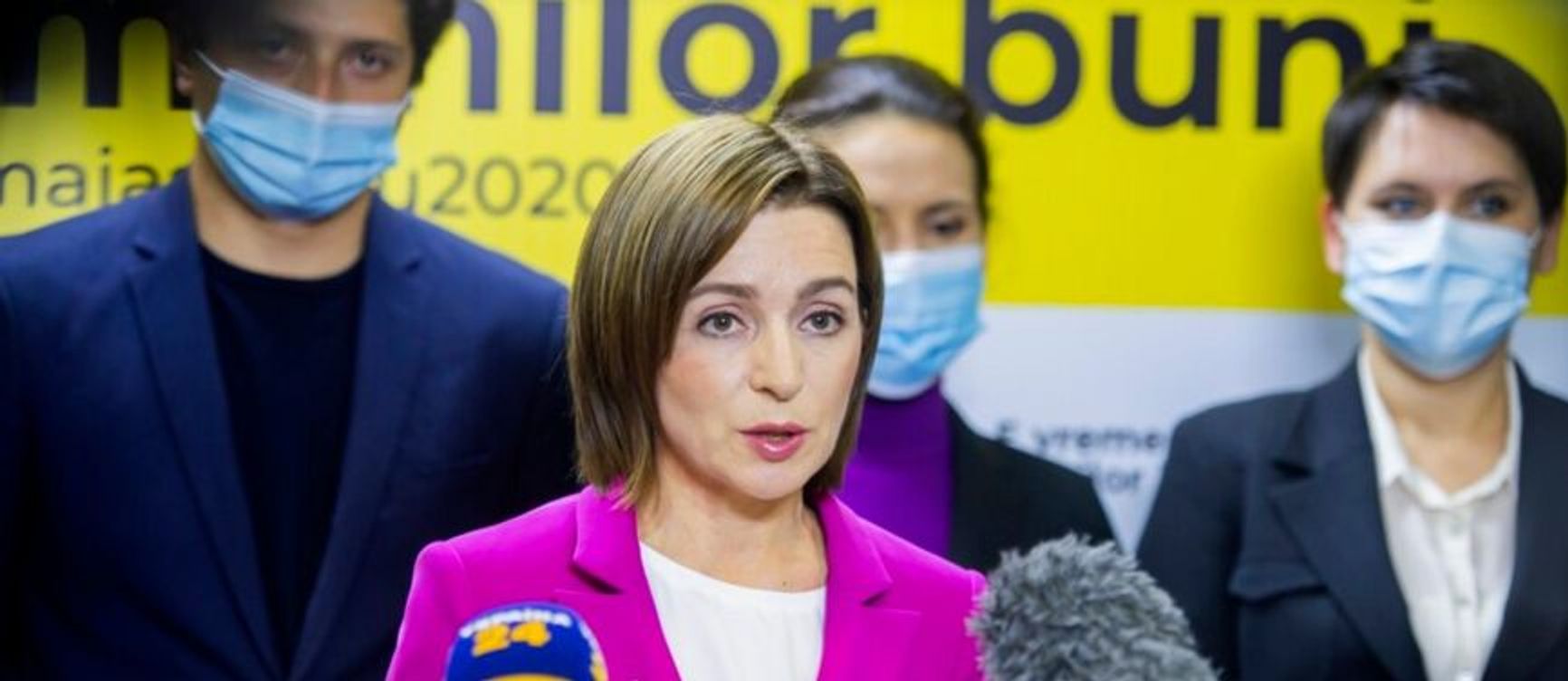
Maia Sandu after her election victory in 2020
Shor’s party organized protests, with Shor addressing his supporters from TV screens put up in downtown Chisinau. In April 2023, the Chisinau Court of Appeal sentenced him to 15 years in prison for financial fraud in absentia. This didn't stop Shor either. That spring, he performed another round of electoral magic: during the election campaign for the head of the Autonomous Territorial Unit of Gagauzia (pop. 134,535) in the south of Moldova, he nominated his own candidate — Evghenia Guțul (Yevgenia Gutsul).
Guțul’s Russian-language biography on Wikipedia now consists of eleven sentences. A year ago she had no biography to speak of. Shor mustered up a new regional leader in a matter of months — practically out of thin air. Guțul and Shor were accused of electoral corruption and buying votes. The accusations were made at the government level — including by the prime minister. But a year later, there are still no court cases relating to the electoral scheme, and Evghenia Guțul continues to work as head of Gagauzia. Being a very poor public speaker, she rarely gives interviews and appears to have little knowledge of politics and economics. However, on March 6, 2024, in Sochi, Vladimir Putin spoke with Guțul — and even took a photograph with her — as part of a meeting that made it onto Russian national news broadcasts.
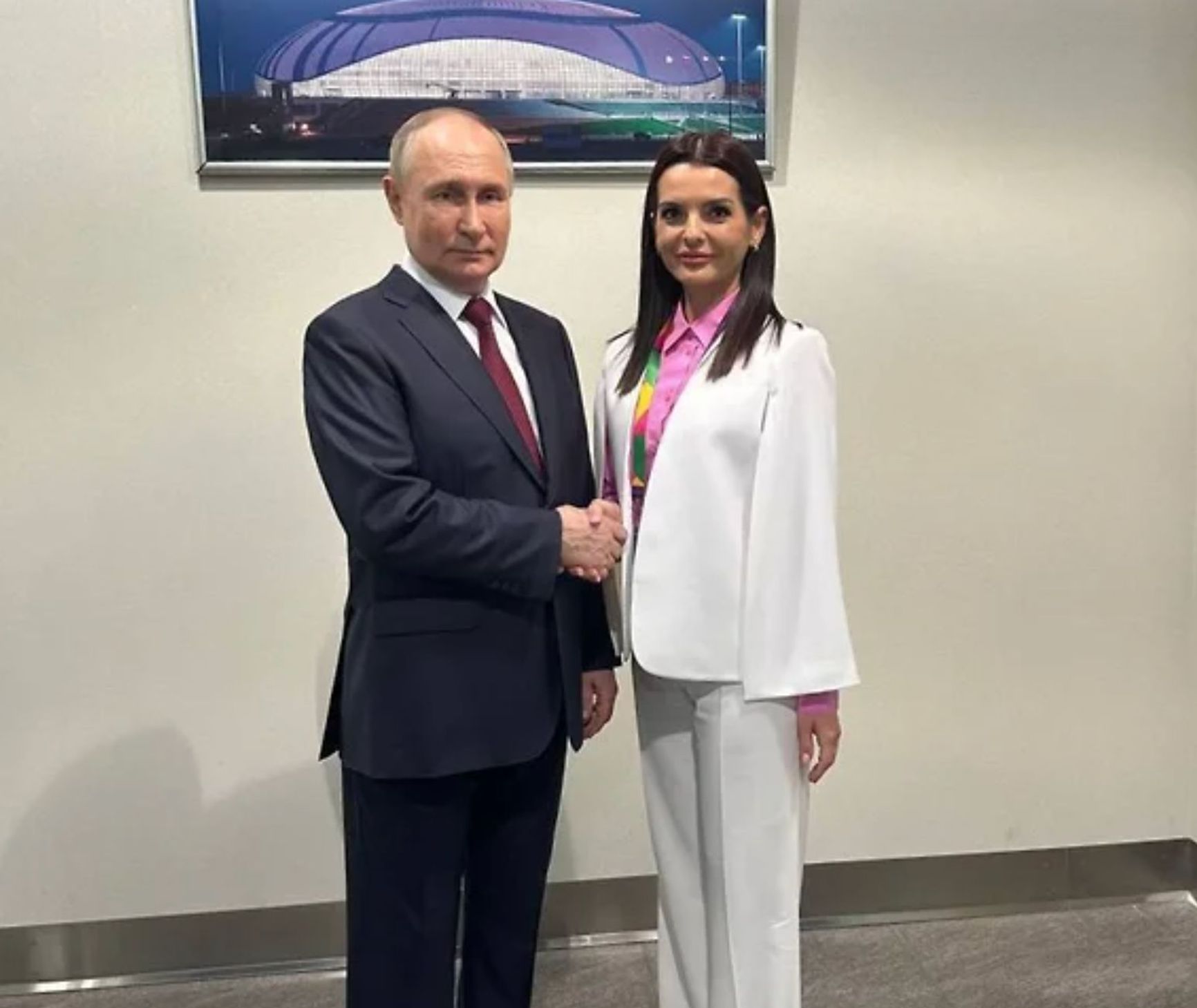
Vladimir Putin and Evghenia Guțul in Sochi, March 6, 2024
The population of the Gagauz autonomy is almost completely pro-Russian — locals mostly speak Russian and never vote for pro-Western politicians. Gagauzians are extremely opposed to Chisinau and are largely against the idea of Moldova joining the EU. There are people in Gagauzia who openly say that they would greet Vladimir Putin with flowers should he arrive to “liberate” them.
There are people in Gagauzia who openly say that they will meet Vladimir Putin here with flowers
In the early 1990s, Gagauzia proclaimed its own breakaway state, the Gagauz Republic, independent from Moldova — a move similar to that of the unrecognized Transnistria (which is “officially” known as the Pridnestrovian Moldovan Republic, or PMR). However, unlike the “PMR,” and in nothing short of a miracle, Gagauzia managed to avoid bloodshed, as : 30 years ago the “autonomous territorial unit” made peace with Chisinau, agreeing to remain a part of Moldova proper.
Before Evghenia Guțul was elected head of the region, relations between Chisinau and Comrat (the capital of Gagauzia) were not good, but there were no open conflicts. Now that power in the region has essentially fallen into the hands of Ilan Shor, conflicts — often loud ones — are the name of the game. President Maia Sandu refused to sign a decree to include Guțul in Moldova’s government. Guțul responded by saying she would take Sandu to court.
In 2015, Russian authorities had banned Shor from entering the country for a five-year period claiming he was a “threat to national security.” But today, everything seems to have changed — Shor recently moved from Israel to Moscow and is now in favor with the Kremlin. He is threatening the stability of the Moldovan government from Russia. And not without success.
Last year, the Shor party was outlawed in Moldova. But in its place, two new parties — “Revival” and «Chance» — also connected with Shor, immediately sprang up. Both are in favor of restoring positive relations with Russia. Shor himself says that Moldova should move in the opposite direction from the EU — into the Eurasian Economic Union, dominated by Moscow. This despite the fact that Moldova became a candidate for EU membership in 2022, and that Brussels started direct negotiations on Moldova’s accession to the union with Chisinau in 2023.
In Moscow, Ilan Shor is received by high-ranking politicians such as Konstantin Kosachev, the vice-speaker of the Federation Council, Russia’s upper legislative chamber, and the head of the State Duma Committee on CIS Affairs, Leonid Kalashnikov. These visits are official and public. Non-publicly, The Insider's sources say, the fugitive Moldovan businessman maintains contacts with Russian presidential spokesman Dmitry Peskov and billionaire Roman Abramovich.
Shor's rhetoric still works. The Chance party, which he supports and finances, is now in third place in Moldovan opinion polls, behind only the Action and Solidarity party and the only slightly less pro-Russian bloc of Communists and Socialists.
Working to discredit the Moldovan government and Maia Sandu personally is one of Shor's main goals. With spring in full flow in Chisinau and other Moldovan cities, street protests and anti-government actions are to be expected. Shor always pays the people that take part in them — and pays them on time — so citizens will certainly take to the streets, creating the desired image of public dissatisfaction with the incumbent government.
The Transnistrian frontier
The unrecognized breakaway state of Transnistria is another asset of Moscow’s in Moldova. On February 28, the Transnistrian authorities held a “congress of deputies of all levels,” where they asked for Russia's help in confronting Chisinau. So far, discussions have only concerned diplomatic support.
Tiraspol, Transnistria’s capital, is accusing Moldova of instituting a blockade against the region. The rules of the game changed this year when Moldova introduced a new customs code, which ended an amnesty on duties for Transnistrian companies. The special regime had existed for decades, and the sudden change sparked discontent in Tiraspol.
Chisinau's extension of Moldovan laws to Transnistrian territory, which it does not control, became possible due to the war in Ukraine. Since February 2022, Ukraine has closed the Transnistrian section of its border with Moldova. For Kyiv, the unrecognized state is a potential source of threat, as the “PMR” is home to a Russian military task force, while the village of Cobasna is home to a large Russian ammunition depot.
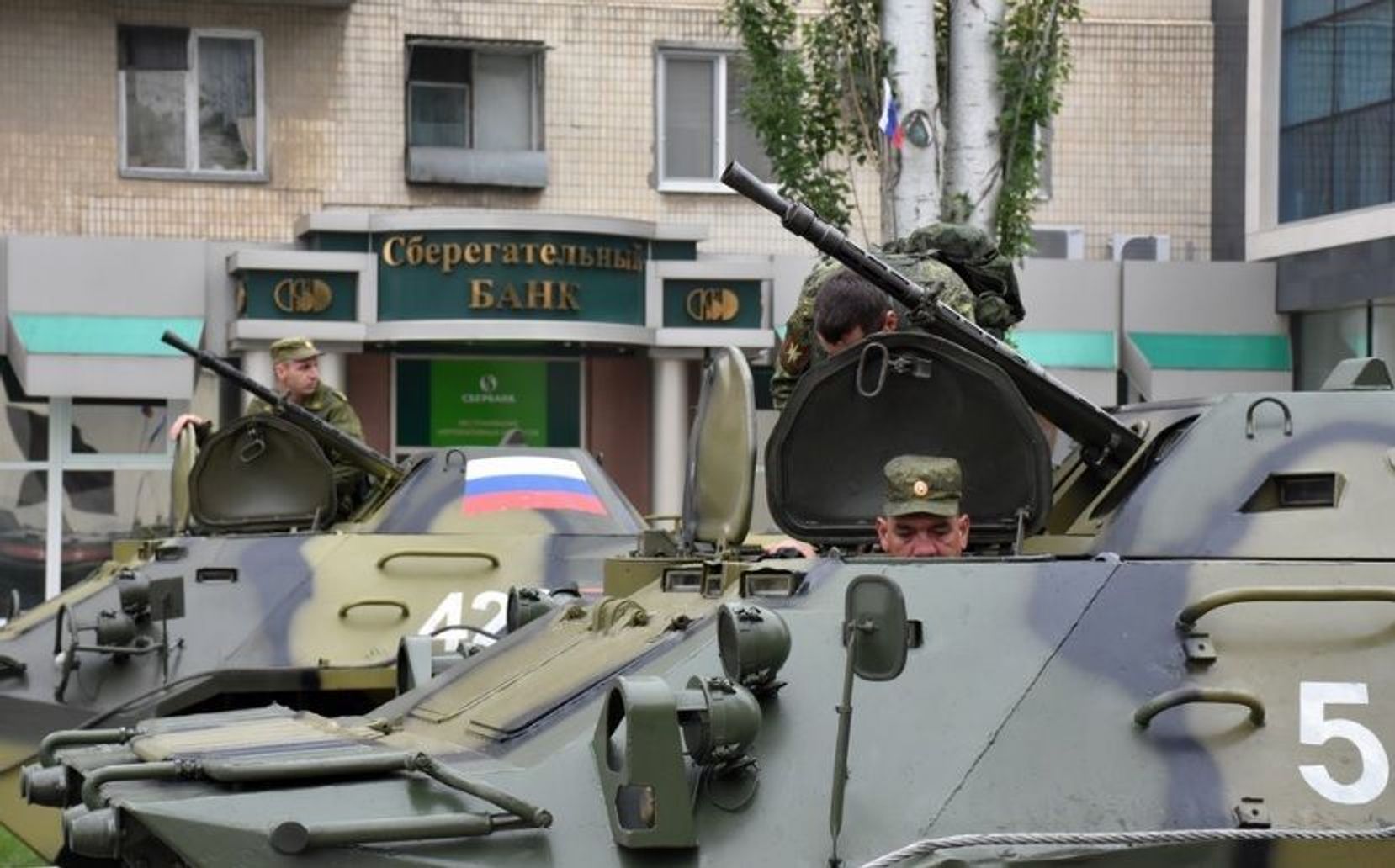
Russian military units in Transnistria
Under the current circumstances, Transnistrian companies can no longer bypass Moldovan customs checkpoints in order to import the products they need into the region. This logistical reality has given Chisinau real leverage over the breakaway territory, and Moldovan Deputy Prime Minister for Reintegration Oleg Serebrian regularly states that Chisinau will seek “the gradual return of Tiraspol” to Moldovan jurisdiction.
But Transnistria does not intend to give up without a fight, as evidenced by its appeal to Moscow for assistance. On the one hand, nothing serious happened: fears that Tiraspol might ask the Kremlin to grant Transnistria accession to membership in the Russian Federation proved not to be justified. On the other hand, tensions between Chisinau and Tiraspol have created a feeling of instability within the whole country. And the effect is doubled when the tension comes from two points at once — Transnistria and Gagauzia.
Pro-European forces
Russia and the West have been jousting over Moldova for decades, , but local representatives of each side have been so historically corrupt that society became disillusioned with its government at every turn.
The country is now run by pro-Western politicians. In 2020, Maia Sandu made an unconventional move for Moldovan politics: she refused to play on the opposition between pro-Western and pro-Russian forces, instead stressing that she would focus on solving problems such as corruption and poverty, and reform and strengthen state institutions. Her party’s slogan — «It is the time of the good people” (E vremea oamenilor buni) — reflected that stance. It paid off, as Sandu became president. . In 2021, her party repeated the success, winning parliamentary elections by promising the people justice, the fight against poverty and corruption, and reforms.
Moldova is now run by pro-Western politicians
Both electoral victories came amid the COVID-19 pandemic. Then came other crises. First, the energy crisis, then Russia's war with Ukraine, which led to the influx of millions of refugees and the breakdown of supply chains. It became difficult and expensive, and sometimes impossible, for Moldovan farmers to ship their products to their traditional Russian and Belarusian markets. All this led to cumulative discontent with the authorities.
This was followed by failures and scandals in attempts to reform the judiciary. The fight against corruption has also been unsuccessful, with high-profile criminal cases either never reaching the courts or, at best, languishing in them.
The EU fully supports Sandu and her team. Many NGOs and media outlets receive funding and grants from the EU. In 2022-2023, Brussels helped the country with money to alleviate the effects of an energy crisis on the population. The European Peace Fund, established in 2021, helps Moldova, as well as Georgia and Ukraine, with security issues (the fund's budget for 2021-2027 is €5 billion). Maia Sandu is eagerly received by European leaders — in early March, she flew to Paris to meet with French President Emmanuel Macron, signing a defense cooperation pact between Moldova and France. Paris pledged its “unwavering support” for Moldova's “independence, sovereignty and territorial integrity within its internationally recognized borders” and said it was “fully backing” reforms aimed at preparing the Moldovan state for accession to the European Union.
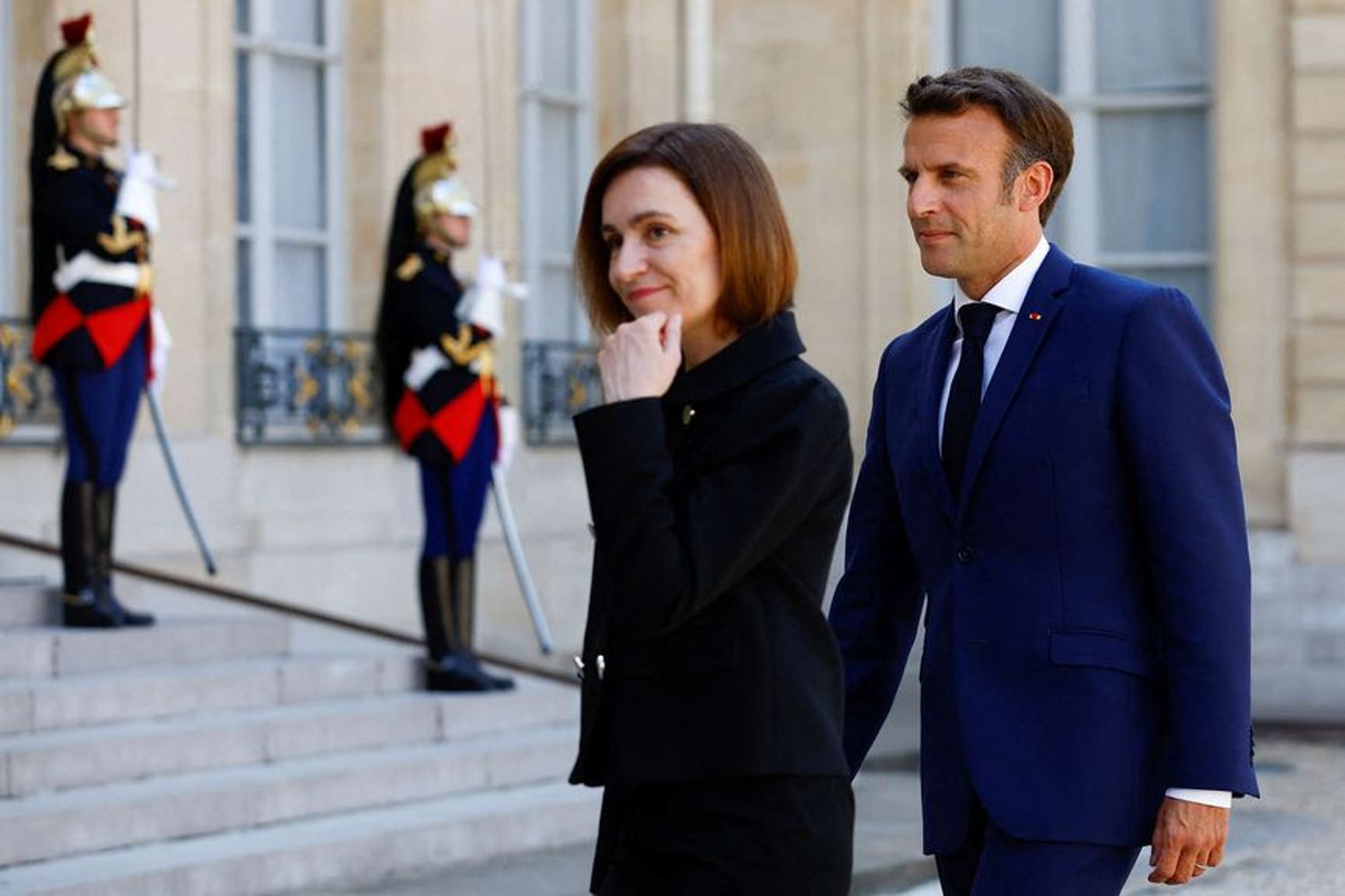
Emmanuel Macron welcomes Maia Sandu before a meeting at the Elysee Palace in Paris, France, May 19, 2022
Nevertheless, domestic political trends have now begun to turn against the incumbent. A poll commissioned by the International Republican Institute and obtained by The Insider shows that the disapproval rating of Maia Sandu, who has never been convicted or even suspected of corruption, is higher than that of Ilan Shor, who was accused of stealing billions of dollars and convicted in absentia: 57% for Sandu vs. 49% for Shor.
This is a worrying signal. It indicates that the situation for the current Moldovan authorities is complicated, and that the outcome of the battle for the presidential seat in the fall is by no means predetermined.